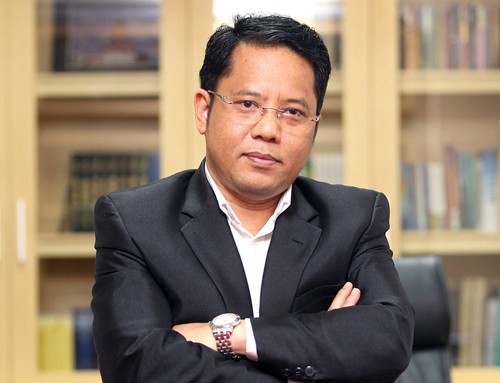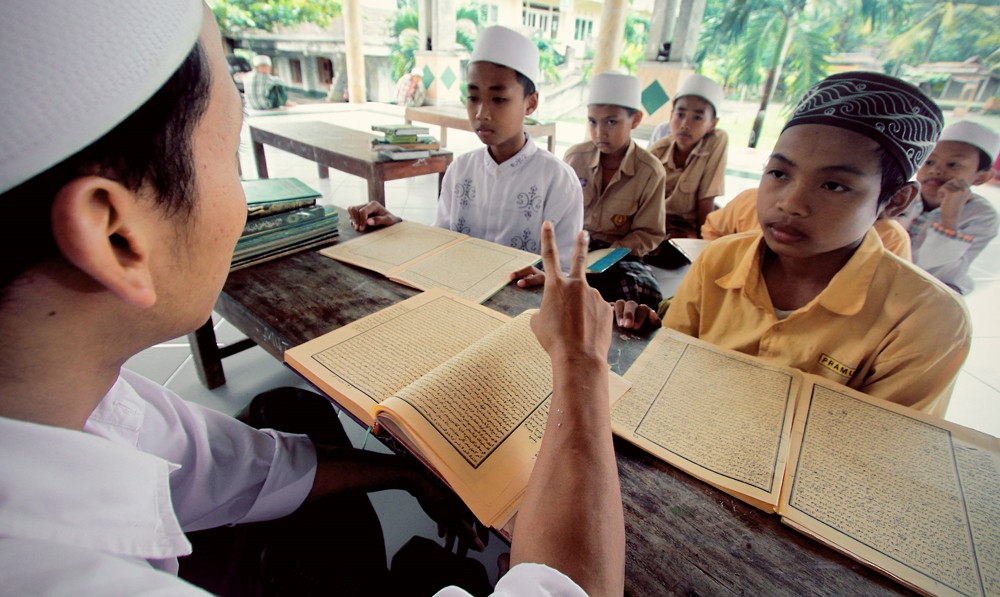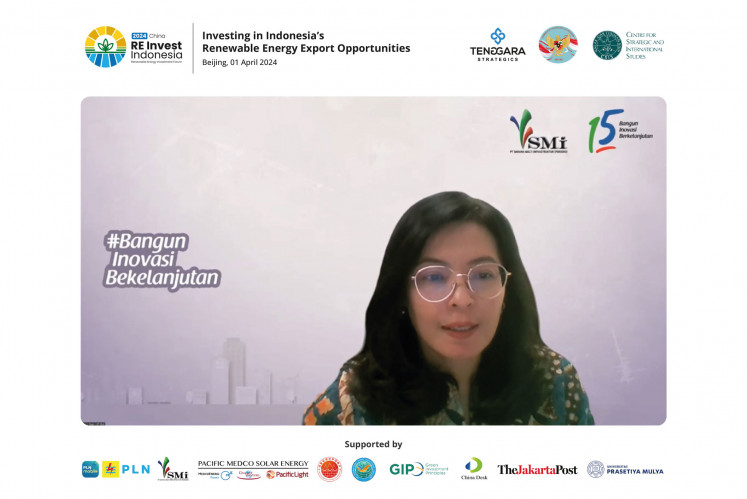Transforming deep Islamic knowledge into affirmative action for good of nation
One year after President Joko Widodo signed Presidential Decree No. 22/2015 to formally designate Oct. 22 as National Santri Day, this year’s commemoration will see some important steps taken.
Change Size
 Pesantren (Islamic boarding school) students, locally known as santri, get ready to perform shalat dzuhur (afternoon prayer) at the school’s mosque after attending a class. (-/-)
Pesantren (Islamic boarding school) students, locally known as santri, get ready to perform shalat dzuhur (afternoon prayer) at the school’s mosque after attending a class. (-/-)
O
ne year after President Joko Widodo signed Presidential Decree No. 22/2015 to formally designate Oct. 22 as National Santri Day, this year’s commemoration will see some important steps taken. The steps are to ensure that National Santri Day is more than a one-day affair. “National Santri Day is affirmation given by the state. And this has been followed by affirmative action,” said Director General of Islamic Education Prof. Phil Kamaruddin Amin, M.A.
Related to the commemoration of National Santri Day, Prof. Kamaruddin said society had responded enthusiastically. “We can see a massive response in the form of activities and events organized by pesantren [Islamic boarding schools], Islamic organizations and society in general,” he enthused.
He further said that the Religious Affairs Ministry had designed programs to follow up on the decision to establish National Santri Day. “This is to strengthen and accommodate santri [pesantren students] to play their roles in developing the nation,” he added.
As proof that National Santri Day is more than a symbolic day commemorated on one specific date, the religious affairs minister issued a ministerial decree that puts the pesantren system in the limelight, further establishing the important role pesantren play in the development of the nation. One of these is the recognition of ma’had aly by the government as a formal higher education institution in the country.
“Ma’had aly reflect the systemic institutionalization of the higher form of intellectual tradition in pesantren; it’s an integral part of the Islamic boarding school system,” said Religious Affairs Minister Lukman Hakim Saifuddin.

“The ministerial decree legalizes ma’had aly as a higher education institution equal to university,” Prof. Kamaruddin said. Ministerial Decree No. 71/2015 officially became effective on May 30, 2016 by the religious affairs minister. The event coincided with the inauguration of 13 ma’had aly and the graduation of students of Ma’had Aly Hasyim Asyari at Pondok Pesantren Tebu Ireng, Jombang, East Java. This is part of the long series of activities related to National Santri Day. As Prof. Kamaruddin said: “National Santri Day is one instrument the government has established to have santri and pesantren in the position where they should be within the context of the great and diverse Indonesian society.”
“Indonesian santri are students with strong commitment to Islam and to the nation. And it is the vision of the Directorate General of Islamic Education to disseminate Islamic values and Indonesian values to everyone, notably students of Islamic studies,” he stated. “As Muslims, santri must fully realize that they are part of Indonesia, a country with a very high level of diversity and pluralism so that there is no resistance to the government establishing National Santri Day. We see that the public has shown high appreciation for this decision.”
National Santri Day is also seen as a good starting point to establish collective awareness among the people. “And from this awareness, hopefully people can play a more active role in Islamic education, including helping Islamic schools that are located in almost all corners of Indonesia,” Prof. Kamaruddin said. “So National Santri Day is not a one-day event. It is not sporadic; it is sustainable,” he asserted.
Today, santri are also entitled to Indonesia Smart Cards (KIPs). “They have the same rights as students of conventional schools and madrasa [Islamic-based non-boarding schools],” he said. “There are 76,000 madrasa with more than 9 million students in Indonesia. And there are 700 Islamic-based higher education institutions. As for pesantren, there are more than 28,000 Islamic boarding schools in our country,” he explained, adding that Islamic boarding schools had created sub-cultures that the country had no problem in accepting. “Remember we have had a president hailing from pesantren — our fourth president, Gus Dur. Many Indonesian officials and executives, including many mayors and regents, also have pesantren backgrounds,” he stated.

Prof. Kamaruddin further said the ministry cooperated with other ministries in preparing Islamic youths to compete globally. “We do this through our higher learning institutes and madrasa,” he said. “I believe there are three functions that Islamic education establishments serve. The first one is to produce young intellectuals with strong capability and integrity. The second one is to safeguard Islam bearing Indonesian characteristics, which is moderate, highly tolerant and appreciative of diversity and pluralism. And the third one is to transform religious knowledge into religious behavior and attitudes,” he explained. He further said that today’s santri were dynamic, and that pesantren produced educated middle-class people who were critical and possessed deep Islamic knowledge.
“The genuine Indonesian educational system is the pesantren system, which the country has known and availed of since colonial times, even before the Dutch colonials introduced Western-style education to some Indonesians at the time,” he explained. “Islam in Indonesia is peace loving and highly appreciates diversity and pluralism. It is the role of all santri to safeguard this against the penetration of dangerous radicalized thoughts that abuse and hide behind Islam. This is what all santri are tasked with, and National Santri Day can be a good time to remind them about that,” Prof. Kamaruddin Amin stated.
To commemorate this year’s National Santri Day, the Religious Affairs Ministry through the Directorate General of Islamic Education has organized various activities in which people can participate. “We have a short-story writing competition that is open to all, not just students of Islamic schools, and the committee received no fewer than 4,000 entries. There will be a very big turnout,” he enthused. The committee also organized a photo competition, which also resulted in thousands of entries. Another activity related to National Santri Day is National Sports and Arts for Pesantren Olympics (POSPENAS), which will be held in Banten province and set to be held from Oct. 22 to 28.









